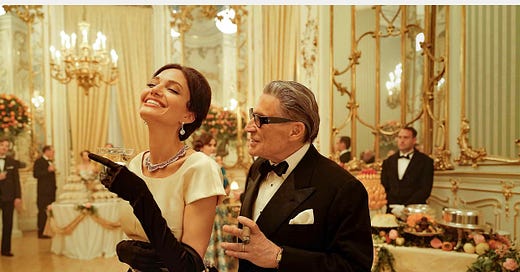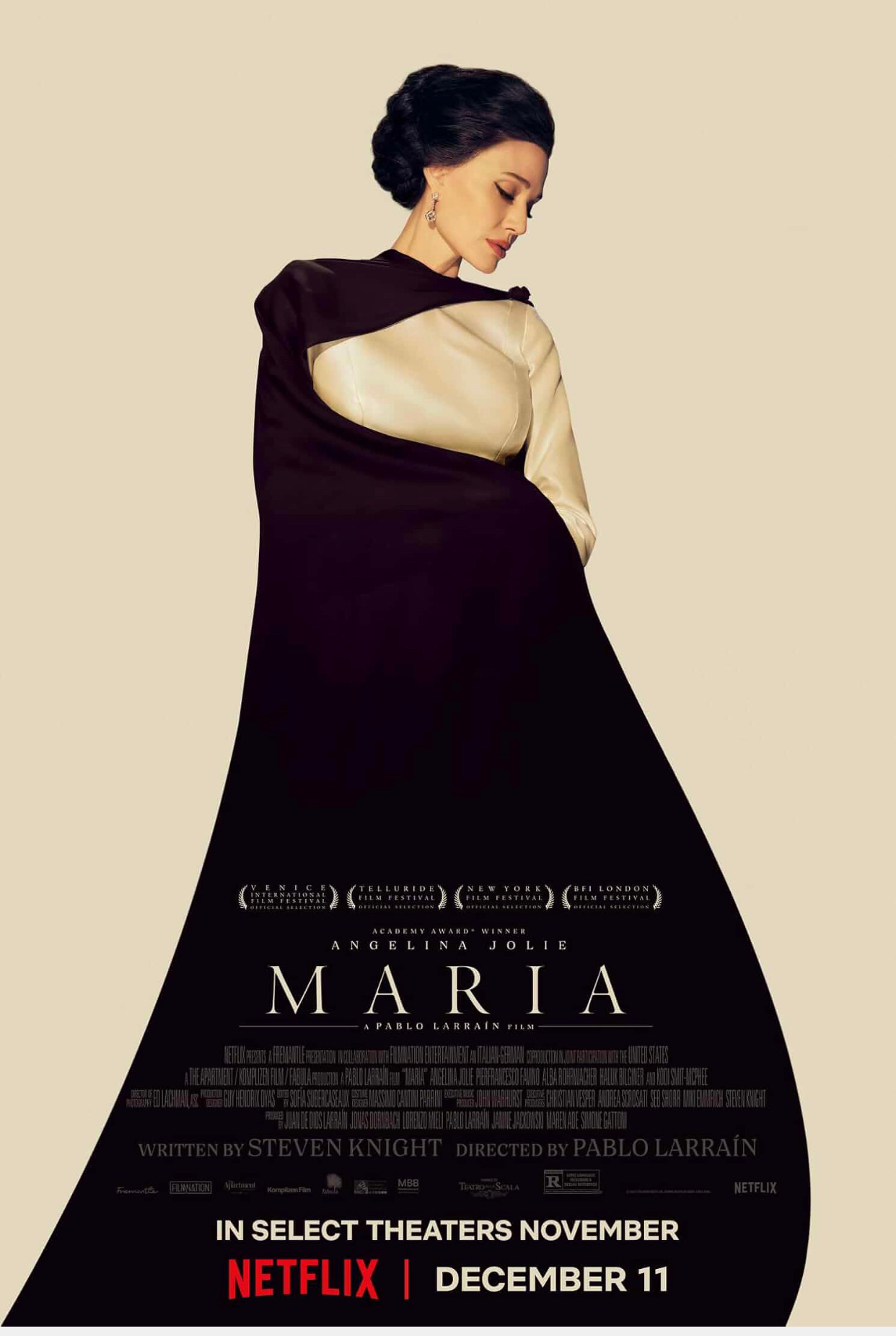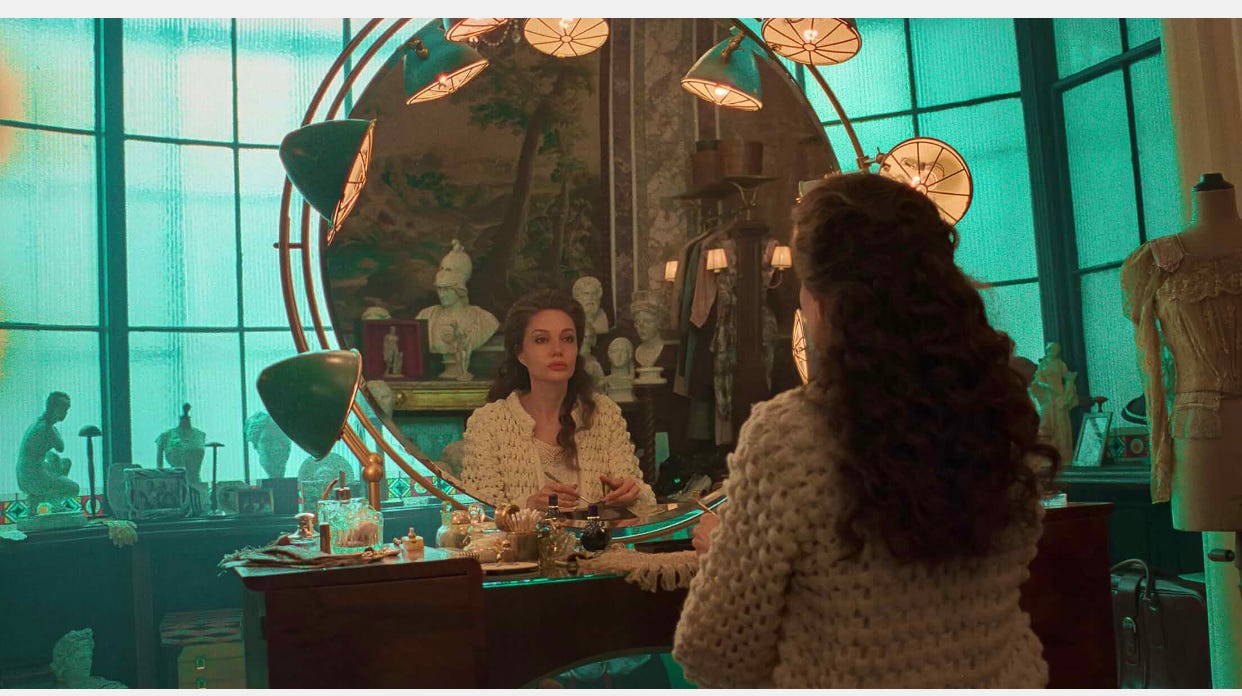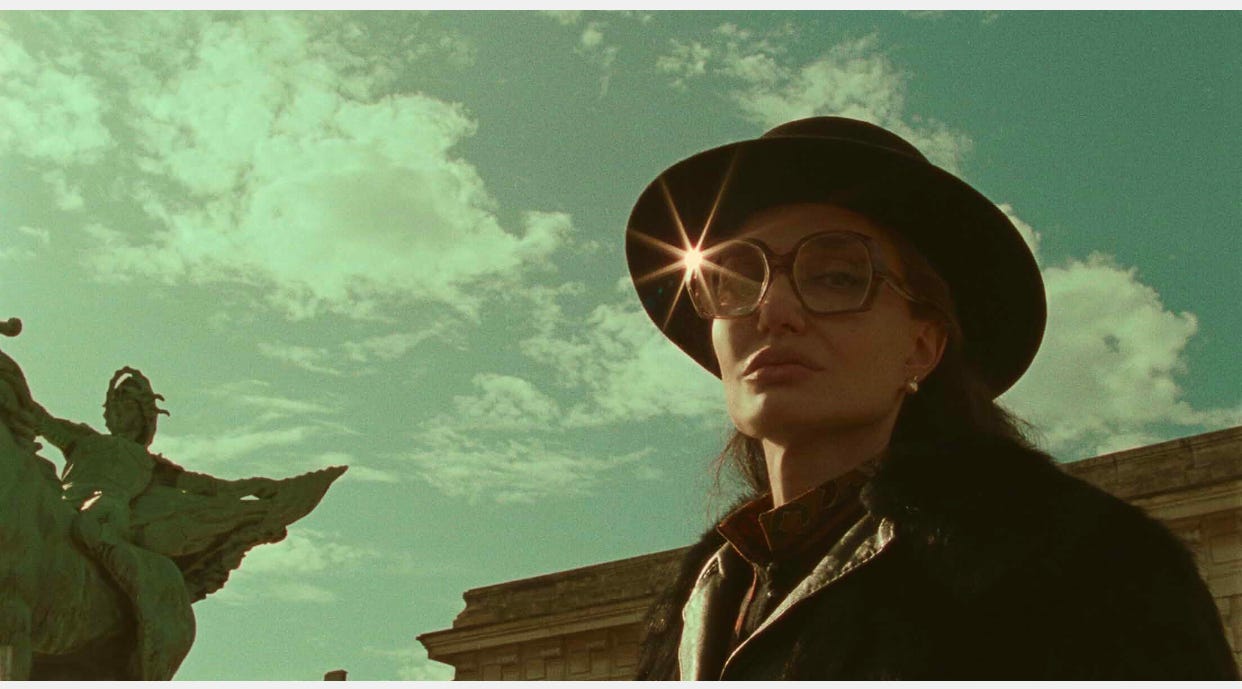With Maria, his excellent movie about opera singer Maria Callas, writer and director Pablo Larrain concludes his trilogy of magnificent women from the last century.
I didn’t expect this movie to be as good as it is. Here’s the deal: I am a big fan of the writer and director from Chile, and I loved both Jackie (about Jackie Kennedy) and Spencer (about Princess Diana), but when Maria premiered in Venice last year, reactions where so lukewarm, that seeing Maria felt less essential.
How wrong was I… Accompanied by my loved one, we caught Maria at the last viewing (11.35 on a Tuesday morning) in our local theater and we both ended up loving it.
I’ll admit to this: during the first 30 minutes (of this 123 minutes movie) I wasn’t completely convinced.
Whereas both Jackie and Diana fought outside forces - the latter against the Royal Family, the former against her dead husband’s enemies while heavily in mourning - Maria Callas seemed to be mainly fighting herself, her past, her memories, her staff, and above all else, her addiction to Mandrax.
Junkie stories can get boring pretty quickly, but just when I thought those early reviews were right, the screenplay by Steven Knight perked up and Larrain started throwing his directorial weight around and by the end we were both convinced we’d once again witnessed something remarkable.
Even though Larrain paints a complicated picture of Maria Callas, the fact that he adores her shines through in every scene and the movie is all the better for it.
The movie takes place in Paris in 1977 and basically covers the last week (highly fictionalized, I’m sure) of the great diva’s life. We see Maria (Angelina Jolie) in her luxurious apartment, gently torturing both her cook (Alba Rohrwacher) and her butler (Pierfrancesco Favino).
The latter has a bad back, but he still has to move her piano from one room to the next and then back again. The former has to tell her that her singing voice sounds so magnificent that Maria ventures out to a theater to rehearse with a pianist and see if it might still be possible to stage a comeback (six years after she retired because of voice issues).
There’s also a journalist (Kodi Smit-McPhee)
and cameraman (Kay Madsen) following her around and interviewing her about her life, even though it’s pretty clear early on that this is the Mandrax talking.
But why not? This is only after she has told her staff that from now on it is Maria (and only Maria) who decides what is real and what isn’t.
Larrain pulls out all the stylistical stops bringing Maria’s heightened sense of reality to life, in flashbacks that are either shot in black and white or grainy color, which both look very different from the luxurious colors Larrain and his Director of Photography Ed Lachlan drape the rest of the movie in luxurious colors.
I could go on, about a visit from her sister (Valeria Golina) who talks to Maria about their tragic childhood in Nazi occupied Greece. Or about Aristotle Onassis (Haluk Bilginer), who became the extremely toxic love of her life, which also led her to meet John F. Kennedy (Caspar Phillipson), bringing the trilogy that started with Jackie full circle.
I haven’t said much about Angelina Jolie yet, but she is imperious as Maria. I won’t say she transforms into La Callas - the physical differences are just too great - but what she embodies very well is the diva’s grandeur, her sense of stardom writ large, which she must know so well from her own life.
And of course there is the music. I don’t know very much about opera, but when I hear it in a movie like this I can’t help loving it. I also think it is a master stroke to mix the voices of La Callas and La Jolie together in the sound mix of the movie. Of course Jolie - who apparently trained for six months - is not on a par with Maria, but it makes the scenes with Callas in decline all the more heartfelt and therefore believable.
I’m not sure if Maria the movie brings us closer to Callas the enigma, but if it brings you closer to her music, and thus her essence, it will have done the job.
Still, despite the Golden Globe nomination for Jolie and the Oscar nomination for Lachman’s cinematography, I feel this is one of the great underrated films from 2024, so in an attempt to get the balance right I give this magnificent movie 4 1/2 stars!







Pablo Larraín is Chile's finest director. I've seen 9 of his, with 'The Club' (2015) being my favourite.
'Ema' was unique. Worth watching the political 'Neruda' and 'No'.
I still need to see 'El Conde' (2022) and 'Maria', but will make the latter priority.